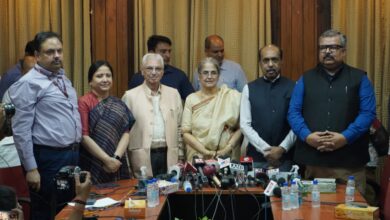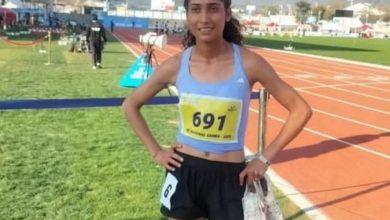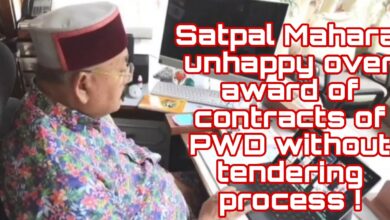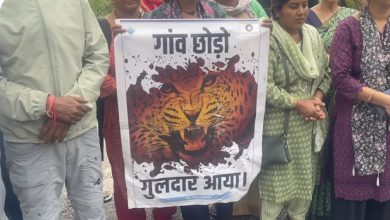Doon University students organise four-day rural camp on critical issues
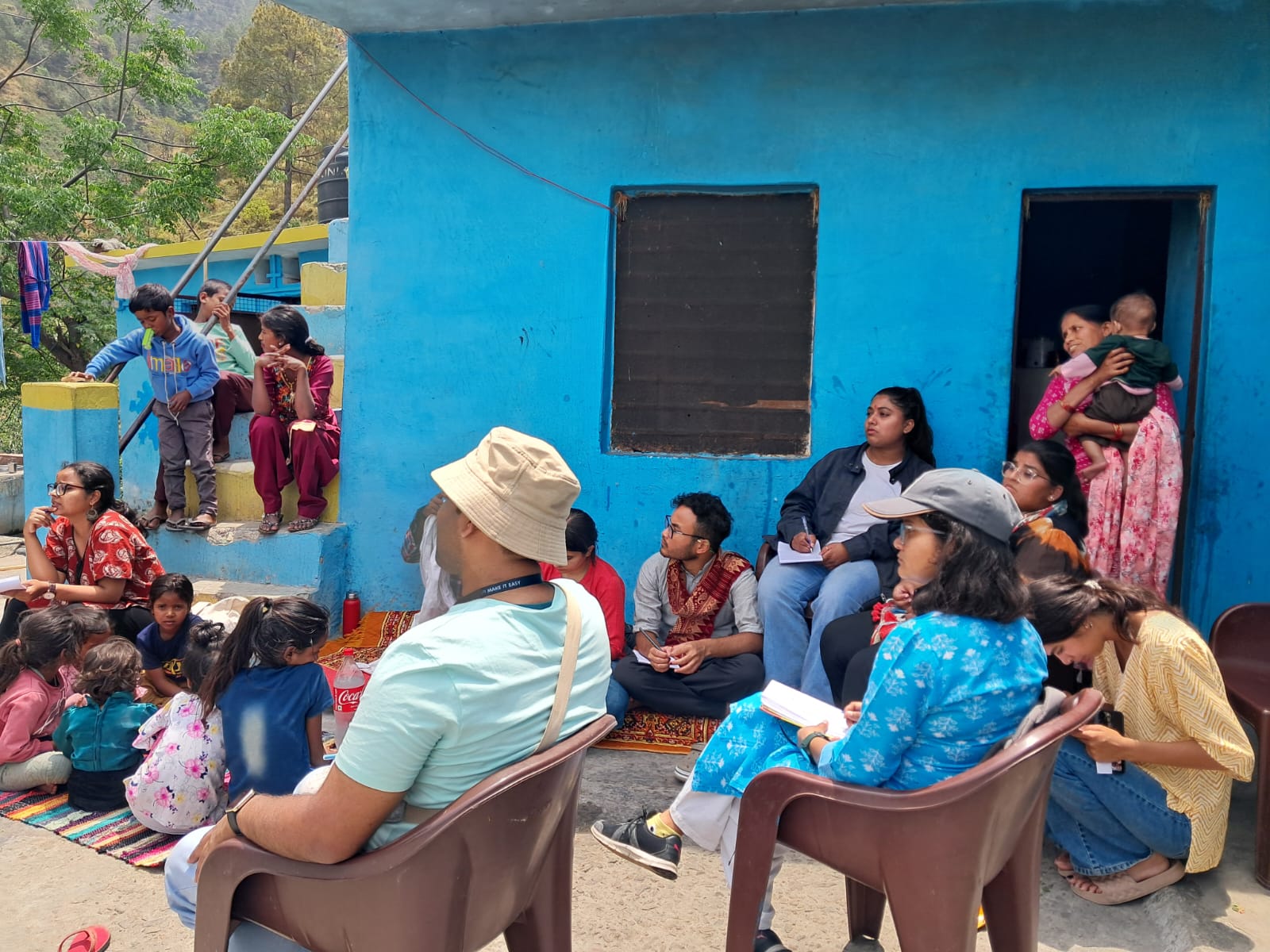

SUNIL NEGI

Dehradun, May 6: The students of Social Work Department of Doon University successfully completed a four-day rural camp at four villages in Tehri Garhwal while gaining hands-on experience engaging and working with community on livelihoods, developmental, socio economic and cultural issues.
This camp aimed at exposing students to the socio-economic and cultural realities of rural India, develop skills in community engagement, and understand rural governance, livelihoods, and development interventions. The objective of the camp was to provide hands-on experience in working with rural communities, to analyse and understand the rural socio-economic structure and issues, to build rapport with local communities and conduct participatory activities, to sensitize students towards rural development challenges and indigenous practices and to understand the role of Panchayati Raj Institutions and local governance mechanisms.
The team visited the farming site of the internationally renowned farmer, Mr. Vijay Jardari, to understand Beej Bachao Andolan and millet farming. Mr Jaradari displayed a diverse but fast disappearing varieties of rice, wheat, pulses, millets and other seeds to the astonishment of students. He underlined the importance of preserving traditional seeds and bio-diversity.
The visit to Uttarakhand Jan Jagriti Sansthan exposed students to the Gandhian environmental movement where students had an enriching discussion with the organisations secretary Mr. Aranya Ranjan, Gandhian thinker and activist Mr. Manoj Pandey and an Dutch environmental rights activists Ms. Janet.
The students spent three days in the Jaspur village conducting village resource mapping, socio-economic survey, and understanding the agricultural practices, migration, livelihood, health, and education status of the Jaspur village. The main activities in the village were a Discussion on Participatory Rural Appraisal (PRA)- Community Profile, Transit Walk, Village Resource Mapping, and Seasonal Mapping. All activities were done by forming teams and allocating tasks to each team. Transit walks were an important activity that was done in the village by the students under the guidance of faculty members. It gives them a deeper understanding of the village, villagers, and their problems. Community cooking with community members was an important part of the rural camps.
An interaction with the team of Baramasa and Mr. Rahul Kotiyal was organized about the rural society of Uttarakhand and the significance of rural camps in Social Work Education. On the last day of the camp, students shared the learnings with the villagers in the presence of Village Pradhan Mrs Anju Dobhal and discussed the way forward for future visits.
The Rural Camp is of immense importance in the Social Work Curriculum. It’s an integral part of the MSW curriculum and professional development. Classroom teaching cannot fully substitute for field realities. This exposure allows students Tto apply theoretical learning in real-life community settings, to practice communication, leadership, and facilitation skills, to understand intersectional rural issues such as gender, caste, livelihood, and education, to understand Himalayan Ecology & its relationship with community livelihood, to observe the role of NGOs, government schemes, and self-help groups, to cultivate empathy, critical thinking, and social responsibility.
The camp fostered both personal and professional growth among the students, deepening their understanding of rural realities and development challenges. Building on this initiative, the Department of Social Work is planning to adopt Jaspur village for future research, outreach, and development interventions.
The department is planning to adopt the village for their future interventions and research for the development of the village.

